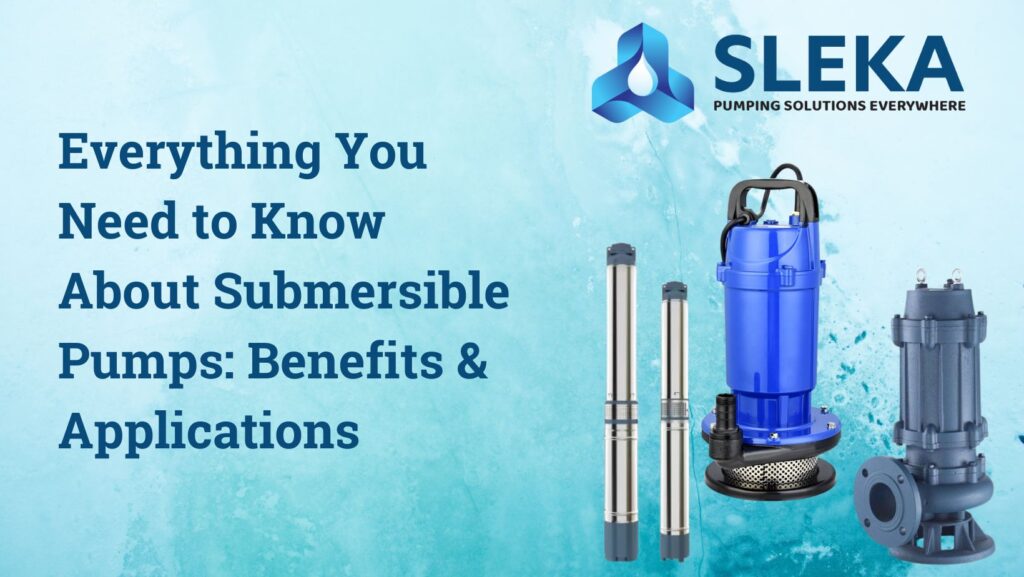Overview of submersible pumps
Submersible pumps are utilized to transfer fluid from one location to another. The key feature of the submersible pump is that it is fully immersed in the fluid or medium they are required to pump. A hermetically sealed motor is close-coupled to the pump body, which is housed in a water-tight enclosure to prevent liquid entry and harm to the induction motor.
Difference between submersible pumps and jet pumps
Submersible pumps
- Working condition – Completely submerged into the liquid.
- Components – A series of impellers and diffusers are involved.
- The main function – The submersible pumps push water from underground to the surface.
- Mounting – Underground with the availability of fluid.
Jet pumps
- Working condition – Need to be filled with water before operations
- Components – Impeller and diffusers are the main components.
- The main function – The jet pumps extract water from underground to the surface.
- Mounting – Above water wells.
The benefits of submersible pumps over jet pumps
Submersible pumps are energy-efficient, have good performance in submerged conditions, have no need for priming, low risk of cavitation, and produce less noise during operations. Unlike jet pumps, a submersible pump uses atmospheric pressure to create a vacuum. Therefore, submersible pumps have higher efficiency than jet pumps.
Significant applications of submersible pumps
- Irrigation
- Agriculture
- Pressure boosting
- Dredging harbors
- Mining operations
- Marine vessels handling
- Sewage treatment
- Sump pumping for buildings and tailings ponds
- Water wells and boreholes
- Wastewater processing
- Domestic
- Industrial water supply
- Solar pump applications
The general classification of submersible pumps
- Water pumps
- Dewatering pumps
- Sump pumps
- Sewage pumps
Water Pumps
Water pumps are utilized to transfer fluid from one area/location to another according to the requirement. The water pump is influentially used in irrigation, pressure boosting, and domestic and industrial water supply sectors. Further water pumps are classified as centrifugal pumps and positive displacement pumps.
Dewatering Pumps
Dewatering pumps as the name of this type of pump refer to its primary function of removing water from one location and transferring it to another. This sort of pump is by and large utilized in numerous places such as tunnels, development locales, mines, and buildings.
Sump pumps
Sump pumps are designed to remove excess water from the basement and are discharged outside. Sump pumps are installed at the lowest point in residential and commercial premises to prevent water collection, which can lead to water damage or mold. For example, if floodwater, runoff, or spill accidentally accumulates in a basement, the water will move into a storage tank or pit in the ground. The sump pump pushes this water out of the building and into a suitable drain.
Sewage pumps
These submersible pumps are designed to handle wastewater. They push water and sewage from a tank or treatment facility to a secondary point, like another treatment system or drain field. These pumps are available in a good range of sizes to accommodate fluids with different particle sizes.
Submersible water pumps are widely used in the world and are our key product.
Wrapping up!
This blog covers submersible pumps, the difference between submersible pumps and jet pumps, the advantages of submersible pumps, six significant applications of submersible pumps, and the general classification of the pumps.
To explore more about submersible water pumps, visit – https://slekaind.com/
To explore more about submersible water pump components such as Noryl impellers and diffusers, visit –www.nobtech.in/impellers.html and www.nobtech.in/diffusers.html


